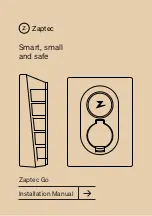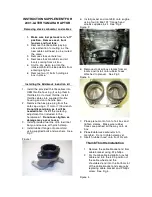
4-4
DRIVING TIPS
79K20-03E
Keep the air cleaner clean
60A183S
A dirty air cleaner will cause the fuel injec-
tion system to supply too much fuel to the
engine for the amount of air being sup-
plied. The result is waste of fuel due to
incomplete fuel burning.
Keep weight to a minimum
The heavier the load, the more fuel the
vehicle consumes. Take out any luggage
or cargo when it is not necessary.
Keep tire pressure correct
Underinflation of the tires can waste fuel
due to increased running resistance of the
tires. Keep your tires inflated to the correct
pressure shown on the label located below
the driver’s side door latch striker.
On-Pavement Driving
Government data show that most rollover
accidents for multi-purpose vehicles are
caused when a driver loses control of the
vehicle and leaves the paved portion of the
roadway striking a ditch, curb or other off-
road object that causes the vehicle to over-
turn. The following driving practices may
reduce the risk of rollover.
Vehicle Slides Off-Road
You can reduce the risk of this kind of roll-
over accident by always keeping the vehi-
cle under control. Typically, drivers lose
control of vehicles, often resulting in roll-
over accidents, when the driver is impaired
because of alcohol or other drugs, falls
asleep at the wheel or is otherwise inatten-
tive, or is driving too fast for the road condi-
tions.
Rollovers On the Roadway
If, for any reason, your vehicle slides side-
ways or spins out of control at highway
speeds, while on the paved portion of the
roadway, the risk of rollover is greatly
increased. This condition can be created
when two or more wheels drop off onto the
shoulder and you steer sharply in an
attempt to reenter the roadway. To reduce
the risk of rollover in these circumstances,
if conditions permit, you should hold the
steering wheel firmly and slow down
before pulling back into the travel lanes
with controlled steering movements.
All Types of Rollover Accidents
As with many kinds of automobile acci-
dents, rollovers can be greatly reduced by
doing what all prudent drivers should do,
i.e., don’t drink and drive, don’t drive when
tired and don’t do anything behind the
wheel that could cause a loss of attention
to the driving task.
Additional guidelines are set out below for
your on-road driving.
Know Your Vehicle
Take time to familiarize yourself with the
unique handling characteristics of your
vehicle by first driving around in an area
away from traffic. Practice turning the vehi-
cle at a variety of speeds and in different
directions. Get a feel for the greater steer-
ing response that your vehicle has over a
conventional car.
Wear Your Seat Belts at All Times
The driver and all passengers should be
properly restrained at all times, using the
seat belts provided. Refer to the “Seat
Belts and Child Restraint Systems” section
for instructions on proper use of the seat
belts.
EXAMPLE
Off-Road Driving: NO
Summary of Contents for 2009 Grand Vitara
Page 6: ...79K20 03E MEMO...
Page 15: ...FUEL RECOMMENDATION 1 79K20 03E 65D394 FUEL RECOMMENDATION Fuel Recommendation 1 1...
Page 140: ...3 41 OPERATING YOUR VEHICLE 79K20 03E MEMO...
Page 150: ...4 9 DRIVING TIPS 79K20 03E MEMO...
Page 282: ...8 11 EMERGENCY SERVICE 79K20 03E MEMO...
Page 288: ...9 5 APPEARANCE CARE 79K20 03E MEMO...
Page 294: ...10 5 GENERAL INFORMATION 79K20 03E MEMO...
Page 298: ...11 4 FUSES AND PROTECTED CIRCUITS 79K20 03E MEMO...
Page 308: ...13 6 INDEX 79K20 03E MEMO...
Page 309: ...79K20 03E Prepared by June 2008 Part No 99011 79K20 03E Printed in Japan TP306...
















































